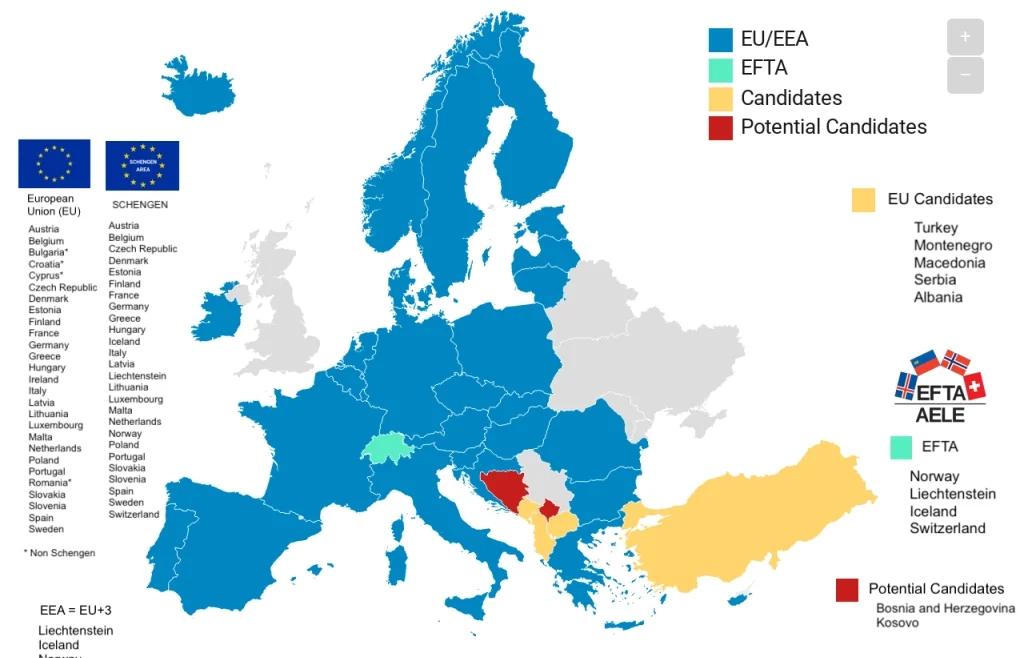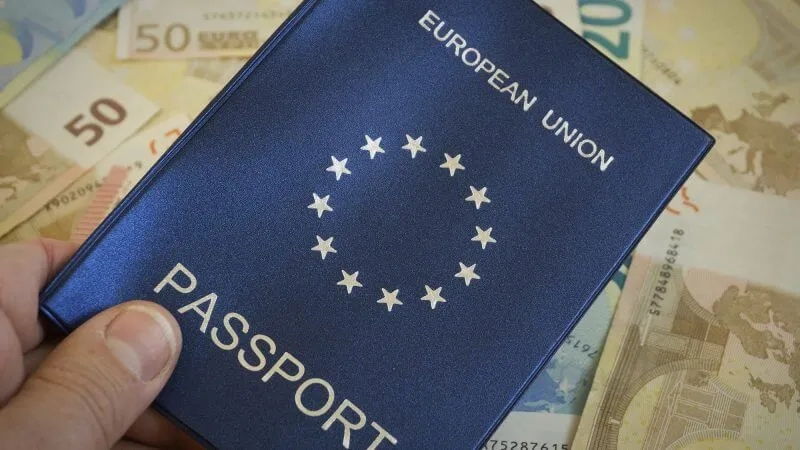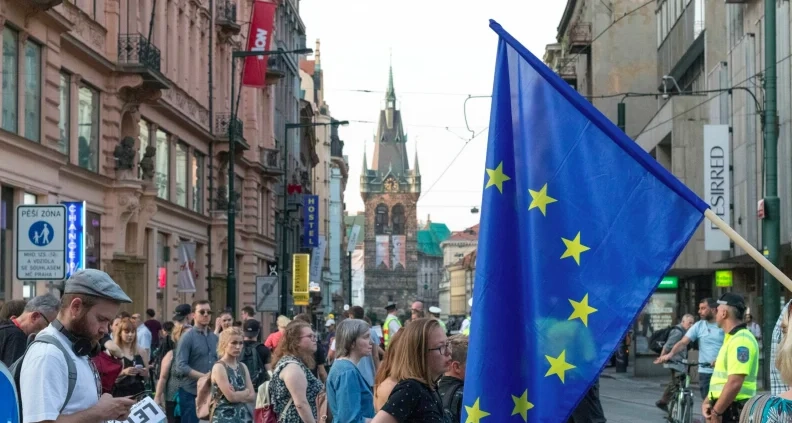Do you have the option to move to the Netherlands for work if you live outside the EU? While it’s more difficult for non-EEA citizens to relocate and get a job, it’s not impossible. Find out more about how people from non-EEA countries can move to and work in the Netherlands.
EU and EEA Countries vs. Non EEA Countries

What is non-EEA? Before we dive right into the options and solutions, it’s important to make a quick distinction between EU and EEA countries and non-EEA countries. Different laws in the Netherlands apply to you if you are an EU citizen or if you are from a country outside the EU.
EEA stands for European Economic Area, and it includes some countries that are outside the European Union. The EEA countries have access to the unified market, and most of the laws that apply to the EU countries also apply here. These countries include:
- Iceland
- Liechtenstein
- Norway
There’s also Switzerland, which isn’t a part of the European Union or the EEA, but Swiss nationals have rights that are similar to those of nationals of EEA countries.
No Visa Requirements for Dutch or EEA Nationals

Workers with Dutch or other EEA nationality, including Swiss workers, do not need a work permit to go to the Netherlands. They are free to come to the Netherlands and start working there only with their ID and passport. They also don’t need to register with the Dutch Migration Service since they don’t need any permits.
The ID and passport proof are enough for the authorities to grant you a stay in the Netherlands. In other words, you can move there without having a job and explore the job market!
Although you can come freely, there are a few steps to take before you start working.
How to Start Working
To start working in the Netherlands, even if you only plan to stay temporarily, you must:
- Register with your local Dutch municipality.
- Get a letter from the municipality with your BSN number (Citizen Service Number). This is your tax and social security number.
- Save the letter to use it at Dutch municipalities, at the hospital, at school, at work, and at institutions for certain benefits. If you lose this letter, you can always find your BSN number on your pay slip, which you will get from your employer.
If you start working in the Netherlands through a temporary employment agency, the agency usually arranges for you to register with the local municipality, so you don’t usually need to plan your own visit to the office.
All in all, not having to deal with visa applications, Dutch immigrant laws, and other bureaucratic processes makes finding work and relocating fairly easy from a legal standpoint..
Finding a Job Through Robin Is Most Effective
Even though there are no long-stay visas and other immigration documents involved, finding a job and relocating can still be a nightmare for EU residents who want to work in the Netherlands. And this is where Robin steps in.
We will help you with the job search and the application process, find you a place to stay in the Netherlands, and prepare you for the culture shock!
So far, we’ve helped thousands of residents move to the Netherlands and work with the Dutch companies. All you need to do is have relevant skills enabling you to work and a valid passport, and you are ready to move to the Netherlands.
Register on Robin and apply for jobs at local and international companies. Wait for our recruiters to get in touch with you and start working abroad!
Jobs for Non-EU Citizens in The Netherlands

To be able to work officially in the Netherlands, foreigners have to meet different criteria. If you are from outside the European Economic Area, you will need a work permit as well as a Dutch residence permit!
That means that you can’t arrive in the Netherlands without a job.
There are only two ways in which non-EU citizens can move to the Netherlands without a job:
- You apply for the Dutch student visa – If you are an international student, you’re allowed to come to the Netherlands without a job, but you must leave once your courses are finished and your visa expires. Permanent residency is hard to get as the country expects you to leave after your studies. In these cases, you only enter the country to further your studies and get your university degree.
- You apply for a Dutch family reunification visa – Getting a family reunification visa under this program requires you to have a partner who is a Dutch citizen or a foreign national with a Dutch residence permit.
You may also try to get a non-eu citizens work clearance application, but the Employment Service in the Netherlands (UWV) only issues work permits if you meet strict requirements. Some of the requirements are listed below:
Regular Employees
For regular employees, here are the main requirements to get the Dutch work visa for citizens outside the EEA:
- Employment contract with an employer in the Netherlands
- Earn at least the minimum wage for employees over the age of 23
- Your employer must demonstrate that the position cannot be filled by a Dutch or another EU or EEA national.
Seasonal Workers
Seasonal workers have it easier, but they still need the Dutch work visa and a secure job before they arrive in the Netherlands.
- Employment contract with an employer in the Netherlands
- Obtaining a Single Permit (a combined residence permit and work permit)
- You must earn the minimum wage or a percentage
When it comes to hiring workers or recruiting them through a recruitment agency, it is up to the individual company or recruitment agency to apply for a work permit. Most recruiters work with European citizens only, as it is much easier to find them a job and send them to the Netherlands sooner.
The Dutch government has pretty strict laws for non-EU citizens, and although it is possible to get a Dutch work visa or a temporary visa to enter and work legally, it takes time and money. On the other hand, the Dutch work with some countries to allow their workers to move to the Netherlands.
There is the Dutch American Friendship Treaty (DAFT), which allows American businesspeople and investors to get a residence permit quickly.
There are other similar agreements between governments around the world. These visa-exempt countries include Argentina, Canada, Hong Kong, New Zealand, and South Korea, as well as some other eligible countries.
Obtaining the Dutch Residence Permit
Some people from outside the EEA are exempt and do not need a work permit. These workers need a residence permit or visa to stay in the Netherlands for less than 3 months. If you fall into any of the cases below, you can enter the country and work legally:
- Workers who have a residence permit that says “allowed to work” (arbeid is vrij toegestaan). This includes foreigners with refugee status and a residence permit.
- Start-ups who have a residence permit as a “start-up”.
- Employees who live abroad but work in the Netherlands for a short period of time, for example, during business meetings or when installing appliances supplied by their employer.
A highly skilled migrant may obtain an EU blue card and may come to the Netherlands adding value to the knowledge economy. These experts may also get the 30% ruling if all the criteria are met.
Skilled Migrants
You may think that a highly-skilled migrant visa can solve your problems as a non-EEA citizen. Again, there are strict requirements to be admitted as a knowledge migrant. Three of them include:
- Before you can apply, you must have an employment contract.
- You must have a minimum gross monthly salary of at least €4,500 per month, depending on your age (which is higher than the average Dutch salary).
- Your employer will also have to be recognized as a sponsor by the Dutch Immigration and Naturalisation Service (IND).
If you think you can apply for a work permit as a highly skilled migrant, it is recommended that you visit the Dutch Immigration Service’s website, where you will find all the information you need. Dutch immigration law can be confusing, so take your time to study even the finest details.
Other Groups
For certain groups of non-EU foreigners, permits are required, but the requirements for obtaining them are less stringent:
- Working students, working a maximum of 16 hours per week;
- Trainees;
- Artists earning more than the minimum wage;
- Refugees should work no more than 24 weeks out of 52.
- Religious ministers such as priests, imams, or religious teachers
If you don’t have an EU passport and your chances of getting a Dutch work permit (TWV) are slim, the best way to get a job in the Netherlands is to first get an EU passport from another EU country and then go to work in the Netherlands.
How to Get an EU Passport

The easiest way to get an EU passport is with the help of family members (citizenship through family members). This is the quickest and cheapest way to get a passport in a short time. If you have parents, grandparents, or great-grandparents in one of the EU countries, you can get EU citizenship. For example:
- An Argentinian can get an Italian passport;
- A Brazilian can get a Portuguese passport;
- A Costa Rican can get a Spanish passport.
Be aware that not all EU countries allow you to have two passports, so you may have to choose between them. But what if you don’t have any family in the EU?
Learn English or Dutch to Increase Your Chances
Unfortunately, there aren’t any shortcuts you can take. Entering the country illegally isn’t an option, as you risk getting banned by the Dutch government and facing deportation. You need to get all the necessary work permits and a valid work contract to get into the country.
It’s best to apply for the EU passport first. But it can take up to five years to get an EU passport. This doesn’t mean that you have to be idle, and you can improve your chances significantly by learning new skills that are highly required in a country such as the Netherlands.
Also, you can learn Dutch or English, which will boost your chances of getting an EU passport. The Netherlands ranks first in English language proficiency. Although this is their second language, almost 95% of people in the Netherlands speak fluent English.
Getting a job in the Netherlands is much easier when you know either Dutch or English. There are a wide variety of jobs that require knowledge of either language for basic communication.
The Dutch language requirement isn’t high for factory and field workers, but you need to be able to communicate with and understand your colleagues well.
Going to the Netherlands With Your Family

If you come to work in the Netherlands as an EU national, then under Dutch law you are allowed to take your family members with you, even if they do not have EU nationality. For foreign nationals, this isn’t the case.
The family members who can accompany you to the Netherlands are:
- Your husband, wife or registered partner;
- Your partner, with whom you are not married but have lived together for at least 6 months or have children in common;
- Your children or grandchildren under the age of 21;
- Your children or grandchildren who are not married and are over 21 years old;
- Your parents or grandparents.
You can take your grandchildren or children over 21 years of age, as well as your parents or grandparents, when you provide for them. This means that you take care of that family member before you even go to the Netherlands, and you continue to do so.
If you are looking for a job through Robin and you want to bring your family members with you, you can. However, keep in mind that we can only find accommodations for workers.
Working in The Netherlands as a Non-EU Citizen: FAQs
I Do Not Have an EU Passport. Can Robin Help Me Get a Job in Holland?
No, Robin specialises in helping people with EU citizenship who speak their mother tongue get a job in the Netherlands, Belgium, and Germany. We do not have any vacancies for non-EU nationals at the moment, nor do we have recruiters outside the EU.
How Long Does It Take to Process a Work Permit Application?
The processing time for a work permit application can vary. It depends on factors such as the specific type of permit, the workload of the relevant authorities, and the completeness of your application. In general, it can take several weeks to a few months to receive a decision.
The most common reason people don’t receive the work permit is because Dutch employers need to justify hiring people who are coming from countries outside the EEA. Even if you have all the relevant skills and plan to work for up to one year, the advantage goes to eligible countries in the EU and the EEA.
Can I Switch Jobs While Working in the Netherlands as a Non-EU Citizen?
If you have a work permit tied to a specific Dutch employer and job, switching jobs may require a new permit. However, if you are already in possession of a Dutch residence visa as a highly skilled migrant, you have more flexibility to change employers without applying for a new permit.
Still, it is best to consult with Dutch authorities and choose the safest move. You don’t want to lose the permit in the process and lose health insurance and all the other benefits that go with it.
Where Can I Find More Information About Working in the Netherlands as a Non-EU Resident?
The official websites of the Dutch government, such as the Immigration and Naturalization Service (IND) and the Employee Insurance Agency (UWV), provide detailed information about working in the Netherlands as a non-EU citizen. You can also consult the nearest Dutch embassy or consulate in your country for guidance, and they will help you learn all the key aspects of living and working in the Netherlands.
Can British Citizens Work in the Netherlands Without a Permit?
The law for British residents has changed since Brexit. From October 1, 2021, you can no longer legally live and work in the Netherlands without a residence permit. Without a residence permit, you can lose any benefits you receive, such as health insurance coverage, for example.

 English
English  Lietuvių
Lietuvių  Latviešu
Latviešu  Polski
Polski  Português
Português  Română
Română  Slovenčina
Slovenčina  Magyar
Magyar  Русский
Русский  Espanol
Espanol  България
България  Čeština
Čeština  Italy
Italy  Croatia
Croatia  Greek
Greek 

